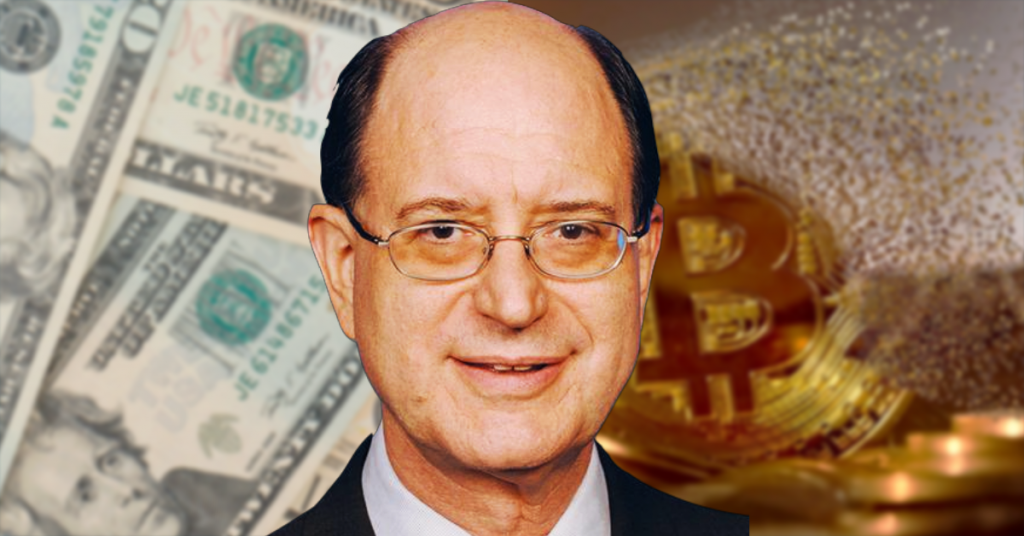Millions of Americans have bought into forms of digital, decentralized money known as cryptocurrency, valuing its privacy and independence from government meddling. Naturally, politicians in Washington want to rain on the parade and shut down the newfangled currencies— like Bitcoin and Ethereum—that are beyond their control.
One of the biggest opponents of cryptocurrency in Washington is Congressman Brad Sherman, a California Democrat who has in the past called for cryptos to be banned. At a Wednesday hearing for the House Committee on Financial Services, Sherman harshly criticized cryptocurrency and renewed his calls for its prohibition.
“Cryptocurrency is something you can bet on, but if people want to have the animal spirits to take risks, I’d prefer them to invest in equity markets to support the building of American companies, or the California lottery, to support the schools in my state,” Sherman said. “Cryptocurrencies are highly volatile, so if one person makes a million dollars… and nine lose $100,000, Coinbase makes money, the millionaire goes on TV and says how wonderful it is, and nine others do not retire in dignity.”
The congressman also claimed that “evading the know-your-customer-rule is the one thing cryptocurrencies have as an advantage to the US dollar.”
“Cryptocurrencies have the political support of the ‘patriotic’ anarchists who are rooting for tax evasion,” Sherman concluded. “I hope we shut it down.” (Emphasis added).
The California congressman gets so much wrong here that it’s difficult to know where to begin.
For one, Sherman seems to think that his personal views on how to invest money should be superimposed on all Americans. Simply put, the congressman and his Washington pals think they know better, and little people like you or me are too foolish to make these decisions for ourselves. This is not only arrogant but incorrect.
You and I have infinitely more knowledge and familiarity with our own financial situation—acceptable levels of risk, investment goals, etc.—than detached politicians and bureaucrats could ever have. It logically follows that we will make better decisions for ourselves than if a top-down, one-size-fits-all approach is crammed down on us from Washington.
(I mean, the congressman is telling people they should put their money in the California lottery, and the odds for the “Grand Prize” are about 1 in 41.4 million. We’re supposed to trust his financial advice?)
Moreover, Sherman’s rhetoric about a select few cryptocurrency winners getting rich off the backs of losers is a classic example of the “zero-sum fallacy.” It’s economically untrue that wealth gains must necessarily come from someone else’s losses. Indeed, when transactions are voluntary, they must inherently serve both parties’ interests. (If they didn’t, the parties wouldn’t agree to it!) So, the picture the congressman paints of cryptocurrency as exploitation is by no stretch of the imagination the reality. People can gain value without others always having to lose.
Sherman also misstates the differences between cryptocurrency and the US dollar. He overlooks the key difference: cryptocurrencies like Bitcoin are beyond central control, and their price cannot be inflated by a central authority. However, the US dollar can be inflated by the Federal Reserve when it prints new money. (In fact, that’s exactly what’s happening right now).
Why does someone with such dubious and ill-informed views on cryptocurrency want to superimpose his judgment on the entire country via government bans? Well, it’s no doubt due in part to the natural arrogance that plagues humans (especially those who become politicians).
But there’s also a more cynical, yet simple answer: Some of Congressman Sherman’s biggest donors are big banks and mainstream financial institutions, the same interests threatened by the rise of cryptocurrency.
According to OpenSecrets.org, the following financial companies rank among Congressman Sherman’s biggest donors to his 2020 Campaign Committee:
- Capital Group Companies: $18,400
- Blackstone Group: $16,800
- BlackRock Inc: $11,250
- American Bankers Association: $10,000
- Capital One Financial: $10,000
- Charles Schwab Corp: $10,000
- Credit Union National Association: $10,000
- Discover Financial Services: $10,000
- Deloitte LLP: $10,000
This offers some insight into why Sherman persists in seeking to ban cryptocurrency. Sure, such a restriction would deprive his constituents of the freedom to make their own investment decisions and shield their finances from stealth taxation via inflation. But it would serve the interests of Sherman’s biggest donors—and it seems like that’s what really matters to the congressman.
Like this story? Click here to sign up for the FEE Daily and get free-market news and analysis like this from Policy Correspondent Brad Polumbo in your inbox every weekday.

Brad Polumbo
Brad Polumbo (@Brad_Polumbo) is a libertarian-conservative journalist and Policy Correspondent at the Foundation for Economic Education.
This article was originally published on FEE.org. Read the original article.

